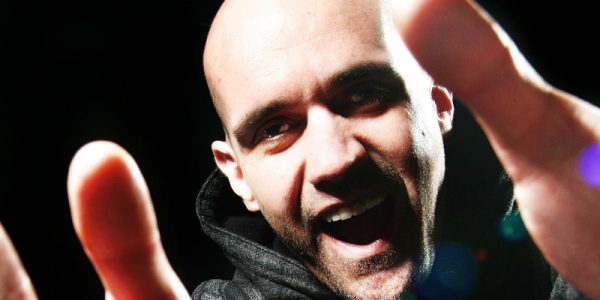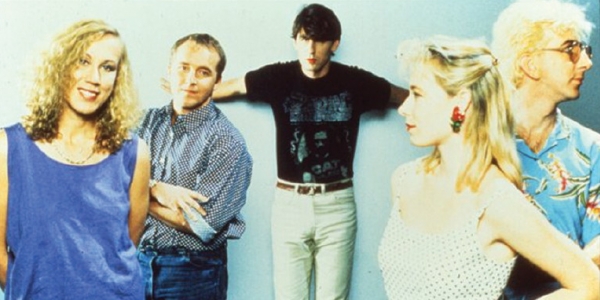“We can’t hide the fact that the scene has gone super commercial and my roots emerged from the underground,” John Fleming begins. A veteran and pioneer of the trance scene, he’s chatting about J00F editions, his touring club night that aims to shift the DJ into the background, remove all gimmicks and promote the music back to its rightful place as the focal point and raison d’être. Immediately affable and friendly, it’s obvious that music is his passion in life and the motive for everything he does career wise.
“When you’re playing at these big festivals with these commercial guys around you just can’t do what you want to do musically cause you’ve got a big crowd and they’re there to see the commercial guys and I just don’t play the big hits all in a row like they do,” he continues. “So going back to the ethos of the good old days of clubbing, it’s small underground intimate clubs, the people are there to see me and I get a free reign to do what I want to do musically. It’s allowing me to do the job of a DJ again.”
It’s a job that Fleming has been doing for over two decades now. He’s been there through it all, from the early ‘90s neon of the Goa trance scene, through the huge peaks of the Superclub regimes such as Gatecrasher and Godskitchen, to the trickier times of late when the credibility bubble has well and truly burst. He’s always been passionate and takes his job very seriously but the explosion of commerciality, particularly within the trance world, has led to frustration at the dilution of the art.
“I was losing that job as a DJ to analyse and work the crowd, to experiment and explore new music and test it out on the dance floor. The way the scene went, it was super commercial, you were just a human jukebox going on autopilot playing the big hits the crowd want. I’m not that type of DJ. Good luck to those guys if they’re enjoying it. I’m more of a traditional DJ, I want to work the crowd, I spend all week, day in, day out, researching and finding new music and I can’t wait to test it out on the dancefloor. Whereas the other guys, they’re kind of marketing machines, they’re mini-concerts where they’re just playing their own tracks. What they do, they’ve got no need to research as people are just there to see them.”
So what about those ‘other guys’, the ones who want to be at the centre of attention? Has there been any reaction against his opinions? “To be honest I’m mates with a lot of them,” he says. “I think they’re aware of what they’re doing, hence why there’s no backlash. I don’t want to mention any names, but when I speak to them you can tell there’s just a bit of uncomfortable embarrassment, almost saying ‘I’m sorry for how I’m crushing your specialist scene,’ but those words are never spoken.”
But these aren’t the rantings of a bitter has-been desperate for fame and money. He has sold over 10 million CDs, including the staggeringly successful Euphoria series (the Progressive edition of which sold 70,000 copies in its first couple of weeks), has remixed the likes of Muse, Energy 52 and Junior Vasquez and for years was riding high in the DJ Mag top 100 DJ charts, in prime position to milk the commercial trance cash cow for all it was worth. But he actively backed away from all of this for musically altruistic reasons.
“When I was in the poll years ago my gigs were worse, people were just booking a number and not a DJ that they knew or cared about,” he expounds. “I remember one year I looked at my gigs and half of them were terrible they were the wrong crowds, the wrong people – that’s when I made a decision. I said to everyone ‘please don’t vote for me,’ and the following year the gigs were fantastic, it had just completely changed.”
It may seem a cliché but this man is genuinely in it for the love of the music. “I’m just in the happiest place ever in my career,” he explains, “because I’m friends with some superstars, I see how unhappy they are, they’ve had that love stripped away from them and if I entered the business the way that they’re doing I would lose all that lot. Yes, they’ve got a bucket load of money, but I think that shows that money doesn’t make you happy. Every morning when I wake up I’m super happy. Finding a new track I feel like a kid when I first started, ‘wow I can’t wait to play this!’ No matter what amount of money you could offer me I would not take it to lose that.”
He never plays his own tracks at gigs and he shies away from as much press as possible. He’s on a mission to go back underground and reclaim trance from the popular masses. It’s time to sit back and let Agent Fleming finish his assignment.
BY ANDREW NELSON

